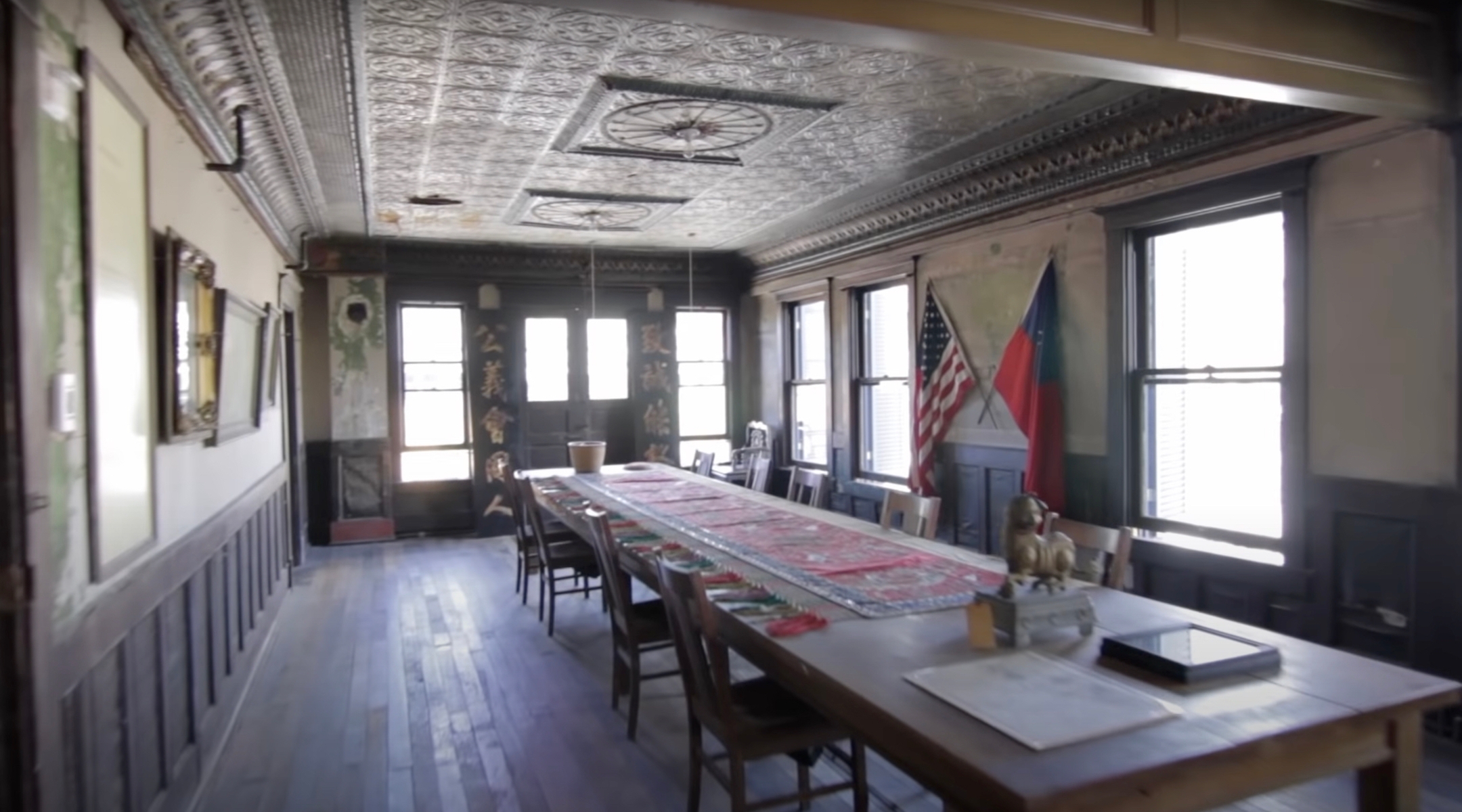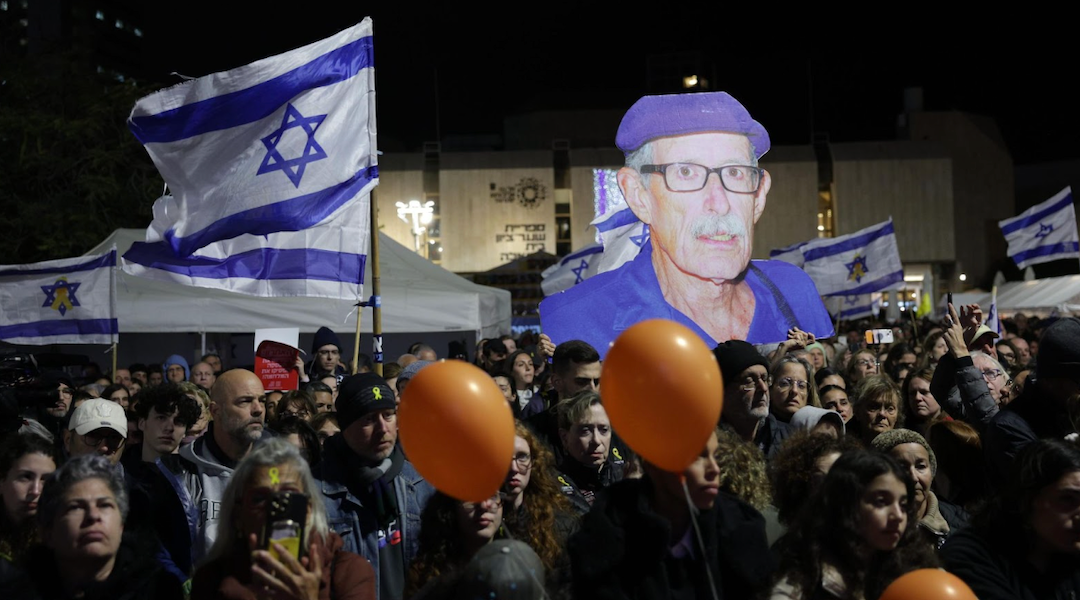Seattle museum staff walk out over exhibit about antisemitism they said ‘conveyed Zionist perspectives’
Staffers at a Seattle museum said they objected to an exhibit panel that says, among other things, “Today, antisemitism is often disguised as anti-Zionism.”

The Wing Luke Museum in Seattle, Washington. (Screenshot via YouTube)
(JTA) – A Seattle museum has temporarily closed after dozens of its staff members walked out to protest an exhibit about fighting discrimination across ethnic groups that they claimed “conveyed Zionist perspectives.”
The protest at the Wing Luke Museum — an Asian American, Native Hawaiian and Pacific Islander heritage museum in Seattle’s Chinatown — surrounds a new exhibit titled “Confronting Hate Together.” The exhibit, cosponsored by Washington state’s Jewish Historical Society and Black Heritage Society, is designed to highlight how the different ethnic communities have experienced both historical and contemporary acts of hate.
According to a description on the museum website, the exhibit is inspired by an anti-hate campaign that was produced by the American Jewish Committee during the World War II era.
“How timely of a topic for an exhibit when acts of antisemitism, anti-Asian hate and anti-Black racial violence not only continue to plague our communities and our nation, but are sadly on the rise,” the Jewish historical society’s board chair, Mimi Rosen, said at a February kickoff event for the exhibit.
But over the weekend, 26 Wing Luke staffers announced they were “withholding labor” over their objections to an exhibit panel that says, among other things, “Today, antisemitism is often disguised as anti-Zionism.”
The panel cites incidents that have occurred after the outbreak of the Israel-Hamas war on Oct. 7, including graffiti reading “Stop the Killing” spray-painted on a local synagogue; campus protests that included what the panel describes as “students supporting Hamas”; and the phrase “from the river to the sea,” which the exhibit says is “a phrase defined by the erasure of Israel” but which many pro-Palestinian groups say is a peaceful call for Palestinian liberation.
“Our solidarity with Palestine should be reflected in our AA/NHPI institutions,” the staffers’ group wrote on Instagram, adding that the exhibit “sets a dangerous precedent of platforming colonial, white supremacist perspectives and goes against the Museum’s mission as a community-based museum advancing racial and social equity.”
Since Oct. 7, the world of arts and culture has been roiled by debates over the Israel-Hamas war. The walkout at Wing Luke follows recent Israel-related controversies at institutions including the Yerba Buena Center for the Arts and the Contemporary Jewish Museum, both in San Francisco, as well as 92NY in New York, art museums at Indiana University and Ohio State University, and publications such as Guernica and Artforum.
The coalition of museum staffers wrote that they had pushed the museum to alter the exhibit’s language. When their efforts failed, they said, they staged a walkout and presented museum leaders with a list of demands related to the exhibit, including the removal of any language that would “frame Palestinian liberation and anti-Zionism as antisemitism” and an acknowledgement that the exhibit does not include Palestinian, Arab and Muslim perspectives.
The group also wants the museum to commit to “platforming community stories within an anti-colonial, anti-white supremacist framework.”
The museum posted a brief notice on its website that it is “temporarily closed” but has no concrete plans for when it will reopen, according to local media. A museum spokesperson told the Seattle Times that it is “working with our staff to address their calls to action” and that it had talked to the Jewish Historical Society “to revise some of the language.”
The director of the Jewish Historical Society, Lisa Kranseler, did not immediately respond to a Jewish Telegraphic Agency request for comment. She told the Seattle Times that the exhibit was designed around the idea that the Jewish, Black and Asian American communities were all victims of discriminatory housing practices in the Seattle area.
She added that the exhibit “never was intended to exclude anyone. It was always intended as a beginning conversation and to inspire all groups to put on exhibits and have dialogues and conversations.”
This article originally appeared on JTA.org.
A message from our Publisher & CEO Rachel Fishman Feddersen

I hope you appreciated this article. Before you go, I’d like to ask you to please support the Forward’s award-winning, nonprofit journalism so that we can be prepared for whatever news 2025 brings.
At a time when other newsrooms are closing or cutting back, the Forward has removed its paywall and invested additional resources to report on the ground from Israel and around the U.S. on the impact of the war, rising antisemitism and polarized discourse.
Readers like you make it all possible. Support our work by becoming a Forward Member and connect with our journalism and your community.
— Rachel Fishman Feddersen, Publisher and CEO




























